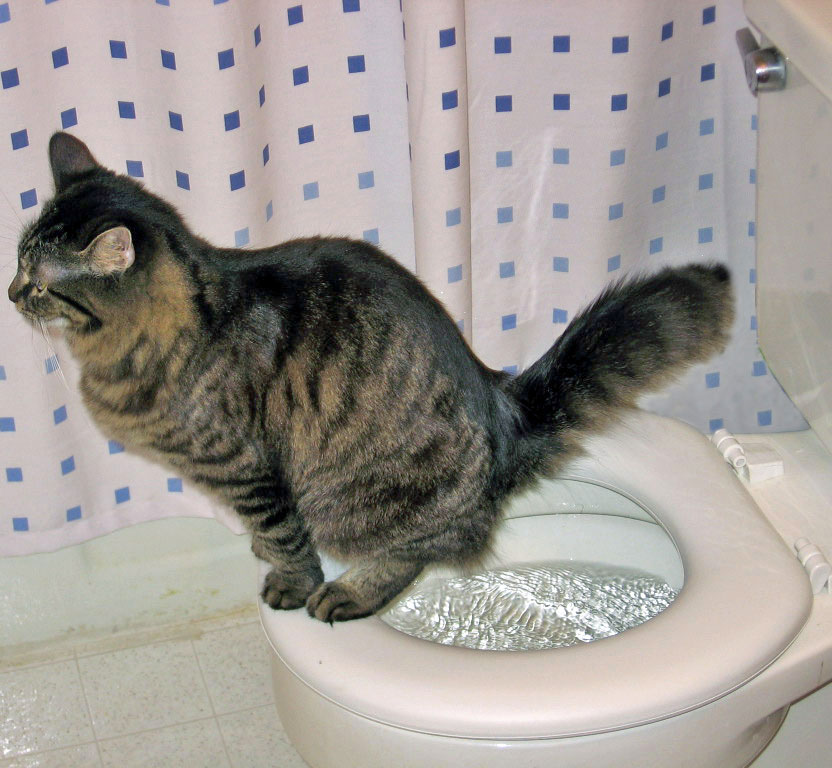Prevent Clogs and Damage: Don't Flush Cat Poop Down Your Toilet - Expert Recommendations
Prevent Clogs and Damage: Don't Flush Cat Poop Down Your Toilet - Expert Recommendations
Blog Article
In this article below you can get some high-quality advice around Can You Flush Cat Poo or Litter Down the Toilet?.

Introduction
As cat proprietors, it's important to bear in mind exactly how we dispose of our feline friends' waste. While it might appear practical to flush pet cat poop down the bathroom, this practice can have detrimental effects for both the atmosphere and human health.
Alternatives to Flushing
The good news is, there are much safer and a lot more accountable ways to throw away cat poop. Take into consideration the adhering to options:
1. Scoop and Dispose in Trash
The most usual method of dealing with pet cat poop is to scoop it right into a naturally degradable bag and throw it in the trash. Be sure to use a committed litter inside story and dispose of the waste immediately.
2. Usage Biodegradable Litter
Choose biodegradable feline litter made from products such as corn or wheat. These litters are environmentally friendly and can be securely gotten rid of in the garbage.
3. Hide in the Yard
If you have a lawn, take into consideration burying pet cat waste in a marked area away from vegetable gardens and water sources. Make sure to dig deep sufficient to prevent contamination of groundwater.
4. Install a Pet Waste Disposal System
Buy an animal garbage disposal system especially made for feline waste. These systems use enzymes to break down the waste, decreasing odor and environmental effect.
Health Risks
In addition to ecological issues, purging cat waste can additionally position wellness threats to people. Feline feces might contain Toxoplasma gondii, a parasite that can trigger toxoplasmosis-- a possibly extreme ailment, particularly for pregnant women and individuals with weakened immune systems.
Ecological Impact
Purging pet cat poop presents harmful pathogens and bloodsuckers right into the water, posturing a substantial danger to water environments. These impurities can adversely influence marine life and compromise water high quality.
Final thought
Accountable family pet ownership extends past offering food and sanctuary-- it likewise entails appropriate waste management. By refraining from purging pet cat poop down the commode and opting for alternative disposal approaches, we can reduce our ecological footprint and protect human health and wellness.
Why Can’t I Flush Cat Poop?
It Spreads a Parasite
Cats are frequently infected with a parasite called toxoplasma gondii. The parasite causes an infection called toxoplasmosis. It is usually harmless to cats. The parasite only uses cat poop as a host for its eggs. Otherwise, the cat’s immune system usually keeps the infection at low enough levels to maintain its own health. But it does not stop the develop of eggs. These eggs are tiny and surprisingly tough. They may survive for a year before they begin to grow. But that’s the problem.
Our wastewater system is not designed to deal with toxoplasmosis eggs. Instead, most eggs will flush from your toilet into sewers and wastewater management plants. After the sewage is treated for many other harmful things in it, it is typically released into local rivers, lakes, or oceans. Here, the toxoplasmosis eggs can find new hosts, including starfish, crabs, otters, and many other wildlife. For many, this is a significant risk to their health. Toxoplasmosis can also end up infecting water sources that are important for agriculture, which means our deer, pigs, and sheep can get infected too.
Is There Risk to Humans?
There can be a risk to human life from flushing cat poop down the toilet. If you do so, the parasites from your cat’s poop can end up in shellfish, game animals, or livestock. If this meat is then served raw or undercooked, the people who eat it can get sick.
In fact, according to the CDC, 40 million people in the United States are infected with toxoplasma gondii. They get it from exposure to infected seafood, or from some kind of cat poop contamination, like drinking from a stream that is contaminated or touching anything that has come into contact with cat poop. That includes just cleaning a cat litter box.
Most people who get infected with these parasites will not develop any symptoms. However, for pregnant women or for those with compromised immune systems, the parasite can cause severe health problems.
How to Handle Cat Poop
The best way to handle cat poop is actually to clean the box more often. The eggs that the parasite sheds will not become active until one to five days after the cat poops. That means that if you clean daily, you’re much less likely to come into direct contact with infectious eggs.
That said, always dispose of cat poop in the garbage and not down the toilet. Wash your hands before and after you clean the litter box, and bring the bag of poop right outside to your garbage bins.
https://trenchlesssolutionsusa.com/why-cant-i-flush-cat-poop/

We were guided to that article on Can You Flush Cat Poop Down The Toilet? from an associate on a different blog. Are you aware of someone else who is excited about the topic? Feel free to promote it. We love reading our article about Don’t flush cat feces down the toilet.
Call Today Report this page